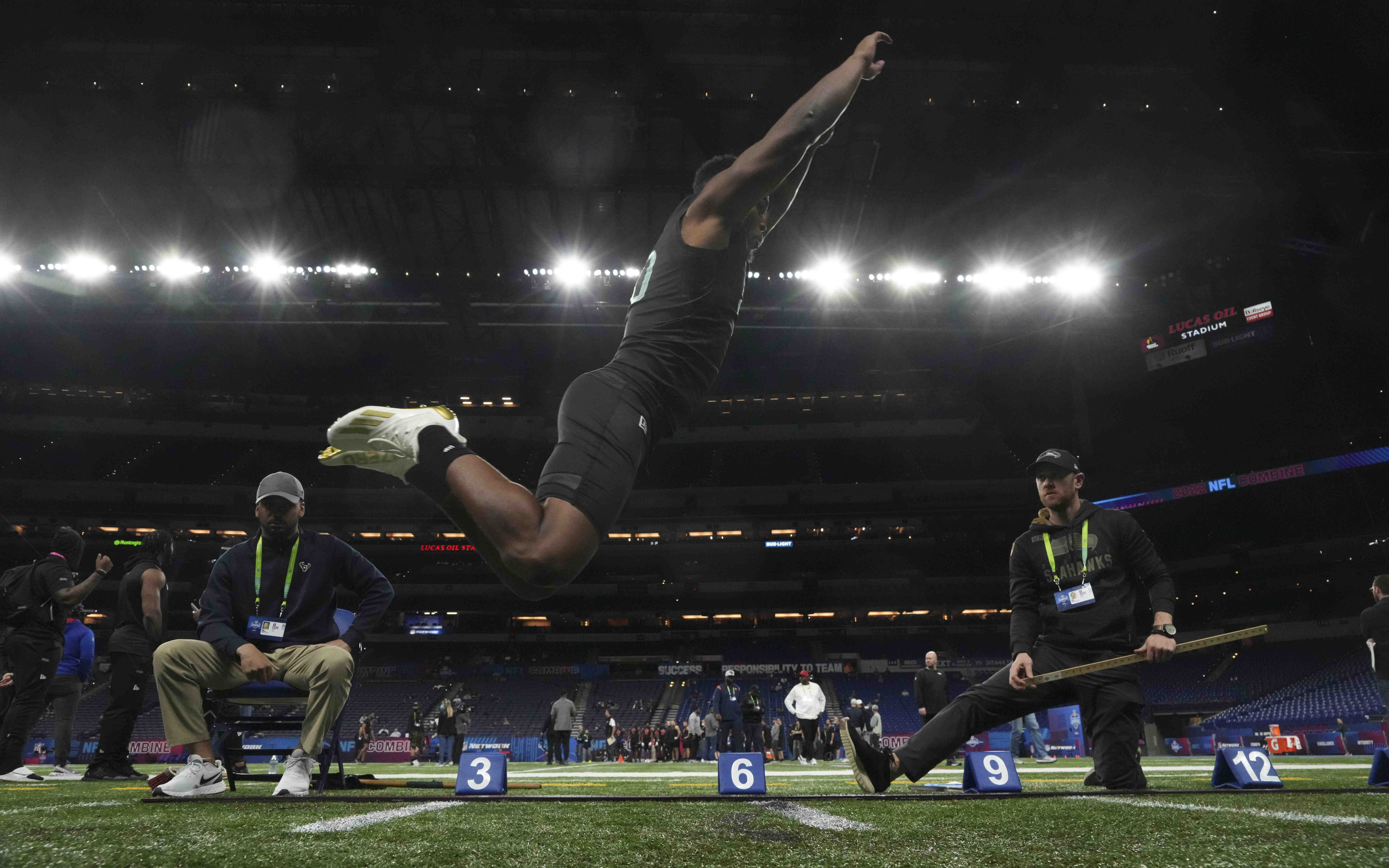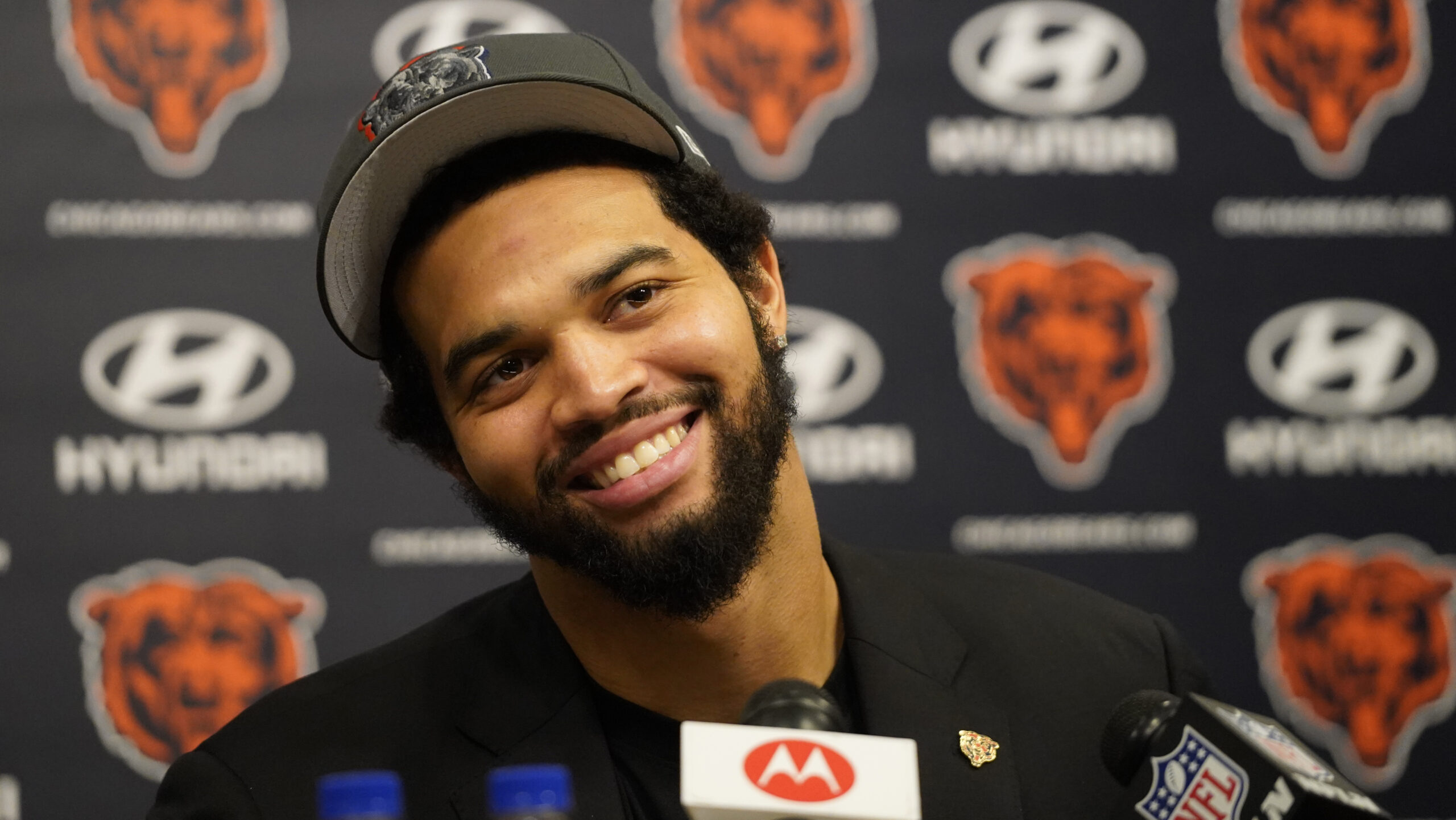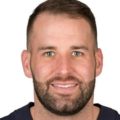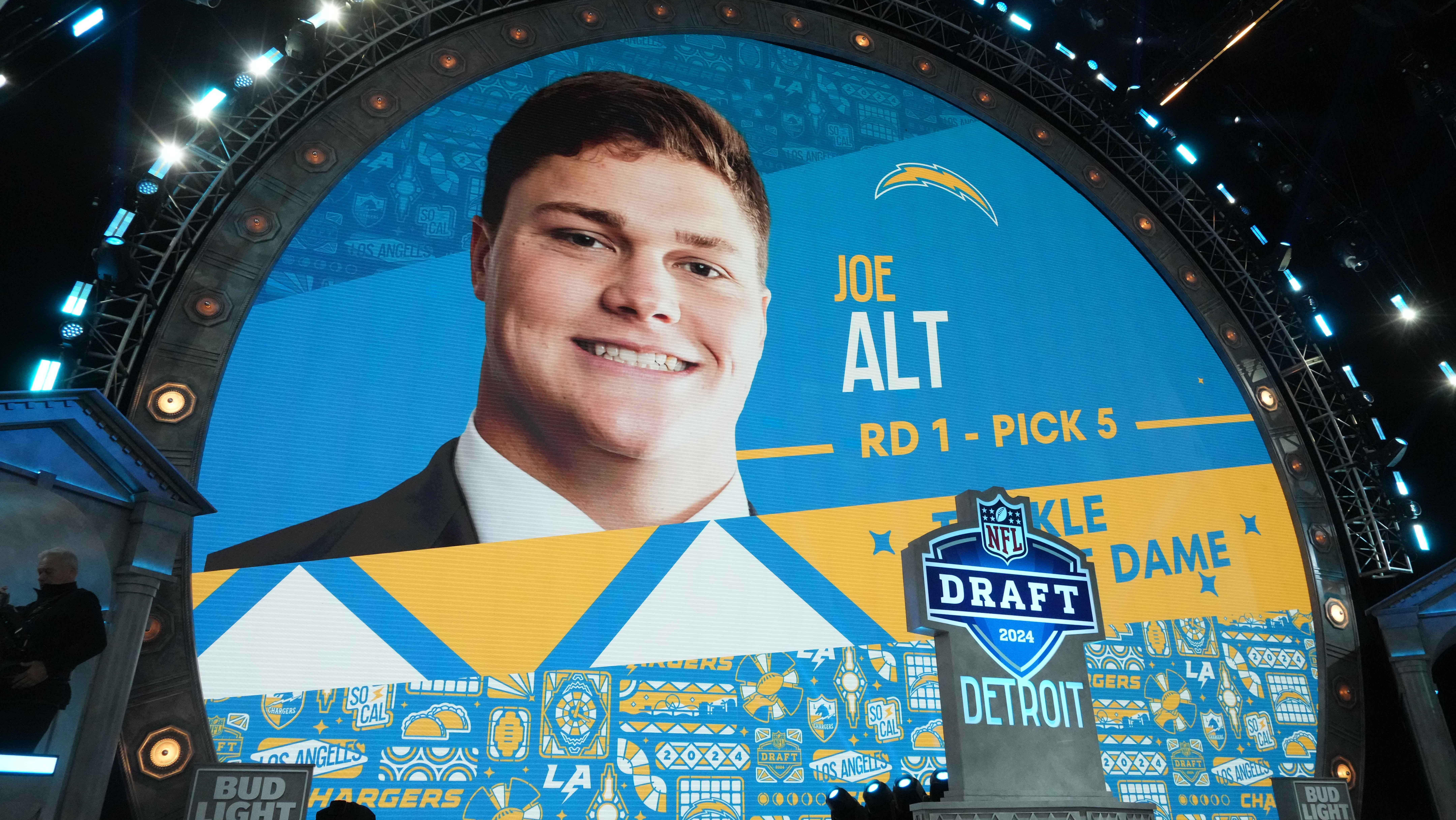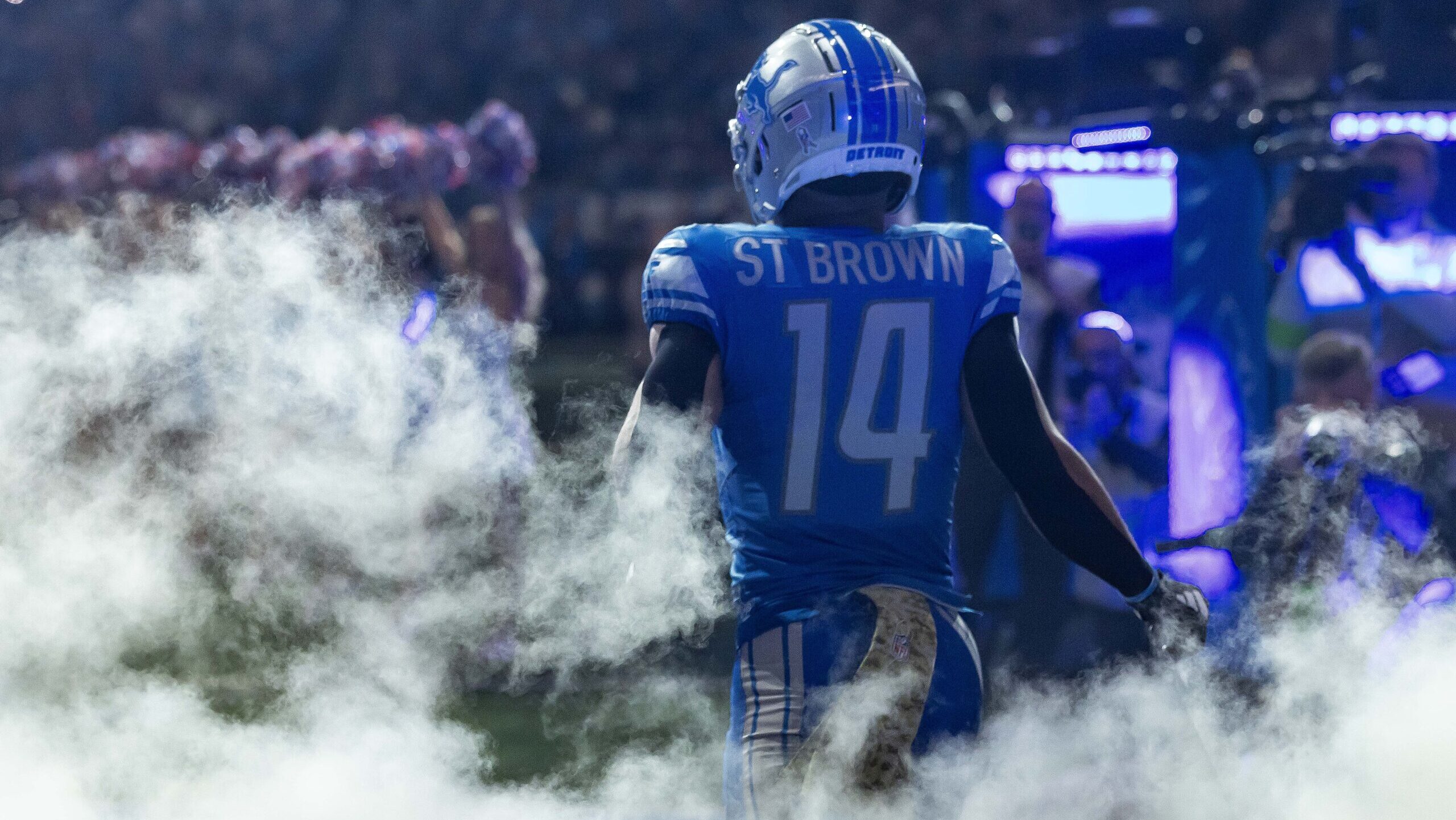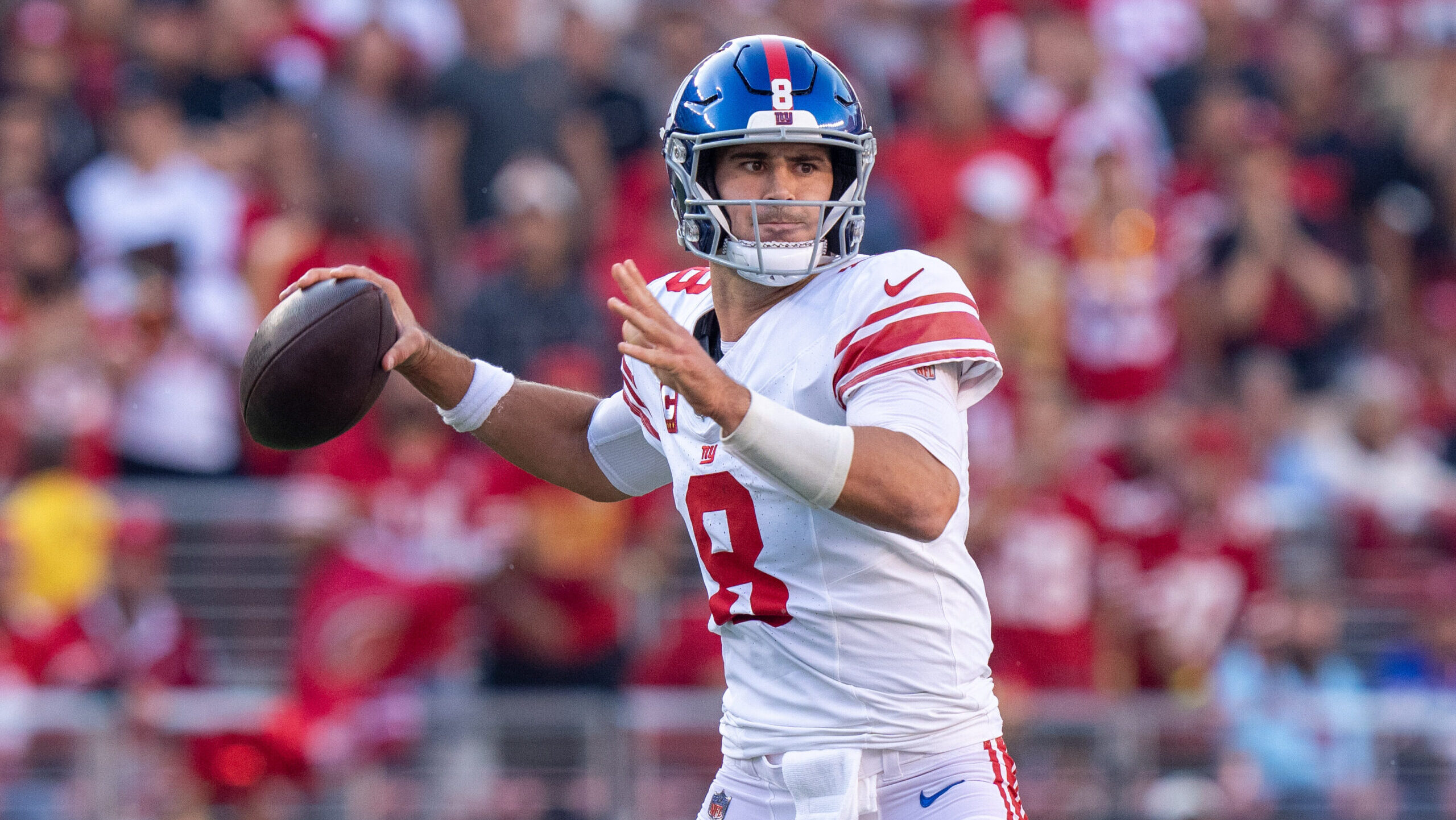Analysis
2/27/23
13 min read
Inside the NFL Combine: What Really Happens in Indianapolis?
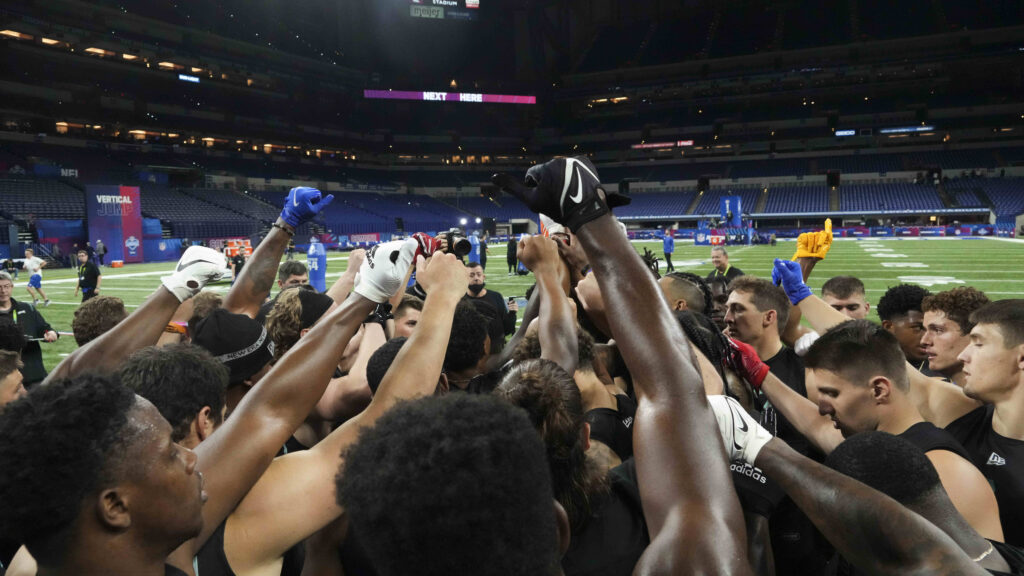
The NFL Scouting Combine is a yearly ritual wherein all 32 teams flock to Indianapolis to evaluate the incoming draft class physically, athletically, and mentally.
Five former players and coaches gave us an inside look at the entire combine process weaving in their favorite stories and most passionate opinions.
Pre-Combine Process
Chris Johnson: Training in Orlando
"When I came out for the draft, the first thing I did was pick a location to train. I did some training down in Orlando, and when I got there, we started with a lot of different stuff. I went in knowing the only thing that was going to separate me, if you skip the politics, was my 40-yard dash time. I already knew I was going to run fast, but going into it, I had slow starts. So I was pretty much working on my start every single day. I was a smaller back coming out, so I worked on getting stronger and bigger, too. I used to work on my bench press a lot, and I ended up benching 225 pounds 21 times. I worked on that a lot. And I also worked on my natural game — catching the ball, footwork, those type of things — going into the combine."
Tank Williams: Quickly Finding I Belonged
"What really stands out to me was that entering the process, I really had no idea where I was going to get drafted, and so I was honored to get the opportunity to go down to play in the Senior Bowl. And I believe that was the first taste that I had of some of the top talents in college football. It was also the first time I understood that I belonged. Following the media back in those days — Miami, Ohio State, all those teams got all the hype. And so you always heard about the players that were playing with those teams. And then, once I got on the field with everyone, I saw that I could really measure up with them. From a skill standpoint, from a speed standpoint, it gives you the confidence to understand that, 'Hey, I'm one of the better players in the league.' And so I ended up having a really great experience at the Senior Bowl, started for my team, played well in the game, and then that belief, that momentum, helped carry over to the combine."
Value of Combine Numbers
Mike Zimmer: Bench Numbers Telling
"There are other things you can learn from the combine, for instance, the bench press. Who really cares if a guy can bench 38 or 39 reps? But you do kind of care if a guy only benches six reps, you know what I mean? So, you can find out if a guy's not going to be in a weight room. He's probably going to be a pain in the rear end trying to get him in to do stuff. The strength coach is going to be complaining about him all the time."
Robert Smith: Different Being There
"[Former Chiefs head coach] Todd Haley was talking about this. He's like, 'You know, you go to the combine and watching it is one thing. It's just different being there and seeing it because you're watching all those other little things that you might be able to pick up on.' And one of the things that he said was when he was a scout, I believe his father told him, 'When you're watching the vertical jump, don't watch the vertical. Don't watch to see how high they can go. You can look at those numbers later. Watch how they land. Watch how they manage the balance aspect when they hit the ground.' That's telling you more about what kind of an athlete somebody is than just the pure explosion number that you see from the vertical."
Tank Williams: Good Exposure
"I was able to perform the DB drills well, able to jump well and then go through the rest of the process and really highlight my attributes. I believe that really set me up to go higher than even I anticipated going in the draft. I do believe there's a lot of value to be found in the combine and in the draft process for certain athletes who may not have had all the hype on TV and on social media and all those things, like some of the players that played for the more prestigious programs."
Mike Zimmer: 40 Time Most Valuable
"The No. 1 thing for DBs, is the 40 time because these guys have got to be able to run. If they can't run, you're behind the eight ball right away. I want to know, whenever a player decides that they're going to go on a cut somewhere: how fast can they get there? But then they go to the catching drill, right? Well, unless a DB can't catch the ball at all, it doesn't really matter because, to me, I was always the guy that said, 'Hey, if he can't get to the ball to catch it, then it doesn't really matter how good his hands are.' When you look at the receivers, it's really the same thing. How fast is he going to get out of his break and get off the ball? How is he going to threaten the defender? You don't see that much because there are no defenders out there on these guys. And that's why I used to like the Senior Bowl. They’d go down there, and they’d go one-on-one. If I were running the combine, these guys would play some one-on-one and we’d learn a lot more about them."
Does 40 Time Matter?
Robert Smith: Test of Optimal Speed
"Not all of the drills translate directly. Obviously, even the 40 doesn't translate directly. If you're a wide receiver or a defensive back, it can. But straight-line speed, especially when you're going from a standing start, that's a test of optimal speed. It's not a test of functional speed. And functional speed on a field is usually in shorter areas when you're transitioning, either turning or you've caught the ball, or maybe you've come out of a break. There is a lot of different ways that you get into that functional speed, and testing at the combine can give you some indication. And that's really what it's about. I mean, it's about getting vague or broad information on a large number of individuals and kind of looking at those numbers and combining them with game film and interviews and all other parts of the process to try and come up with a picture of what an athlete is."
Chris Johnson: It's Everything
"By the time you get to work out, you’re already drained — physically tired, mentally tired. There’s still that adrenaline when it’s time to work. When everybody gets on the field, it’s time to compete, time to run. I’ve always loved to compete my whole life. So when it was time to get out there for the 40-yard dash, I did my thing. I broke the record — ran a 4.24. And after I did that, I felt like there was really nothing else for me to do at the combine. Even though I felt like that, I still wanted to work out in the position drills and do all that stuff. But on my second 40-yard dash, I tweaked my hamstring, so it cut my combine short. That's all that the coaches really cared about anyways. Who can’t go out and make themselves look good in cone drills? So after my 40, I got out of there."
Abandoning Wonderlic: Good or Bad?
Chris Johnson: Disadvantage for Some
"It's great that they got rid of the Wonderlic test because everybody knows that some people are just not good at taking tests. Some people are not good test-takers. And then not only that, you’ve got people who want to go out and compete. We’re not thinking about some tests. It’s a whole different mindset."
Tank Williams: 'Political Tool'
"It seems like over the past few years, a lot of guys have been giving teams a lot of hell for leaking Wonderlic scores. And I agree with that because I believe the Wonderlic is an absolute political tool."
Mike Zimmer: Not Too Important
“Unless a player scored really low, then it really didn't worry to me. You know you’d try to get your linebackers in the 15s and a little closer to line of scrimmage it was okay for them to score a little less. The quarterbacks, obviously, you want them to have a fairly high Wonderlic, but the receivers, who really cares? You know, they just go out there and run fast and catch the ball. And so I guess each position is a little bit different, but I didn't worry too much about it.”
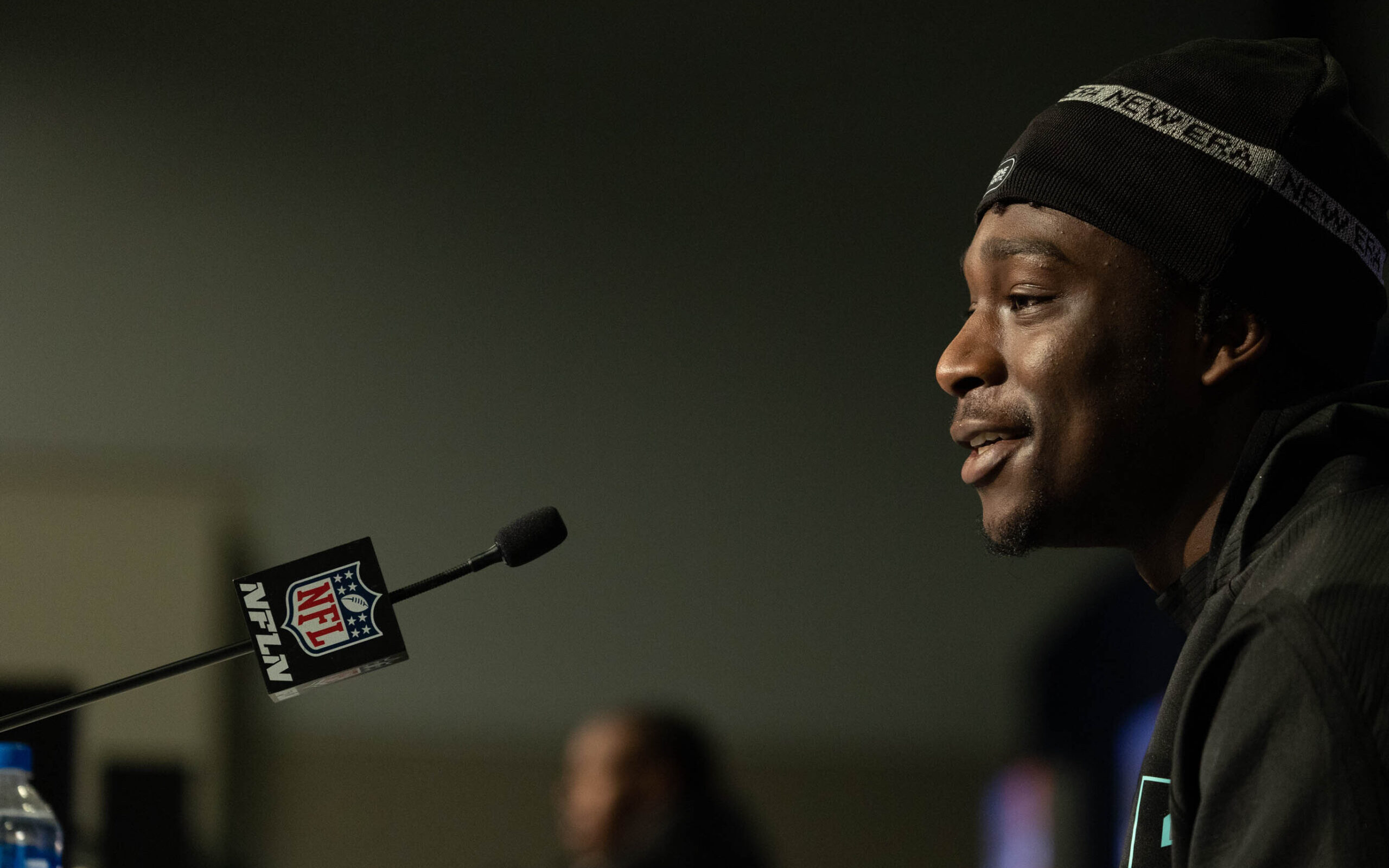
Inside the Interview Process
Chris Johnson: Mind Games
"I don't remember the questions exactly, but there were a lot of weird ones. You’re sitting there, and basically it’s like you’re interviewing for a job or something. I don't know the exact questions, but I can kind of give you an analogy. Let's just say you want to interview for a job at McDonald's, right? You think you're going in there, and they're going to ask you questions about burgers and fries. You know, do you know how to cook a burger? Do you know how to do this and do that? But instead, at a McDonald's interview, they ask you, 'Do you know how to change a tire or do you know how to put a alternator in a car?' It has nothing to do with McDonald's. So those are some of the questions they ask you. We think it’ll be about football, but they ask you some off-the-wall questions that have nothing to do with football. And I guess they're just trying to get in your mind and make you think or whatever."
Robert Smith: Losing Control
"The only question I really remember that stuck out in my head was it was actually part of like a questionnaire. And I don't remember which team gave the questionnaire, but it was something along the lines of, 'Do you find yourself losing control and flying off in rages frequently?' And I just started laughing, looking at it like, you know, they might as well have just asked directly, 'Do you want us to avoid drafting you?' "
Marvin Lewis: Gauging Football IQ
"The interview process is so quick. Players are so coached on that and it's a quick thing, but you do get some feel. And I think the biggest part that we enjoyed out of that was gauging their ability to communicate and talk football with us. You know, where we would throw on some of their tape and have them explain what they were doing. What was the call? What are you asked to do? And so forth. You kind of get a little bit of a feel of how the player understands football and talks about football."
Combine Anecdotes
Robert Smith: Answer Sold Vikings
"During my physical examination with the Vikings, team trainer Fred Zamberletti, who unfortunately passed away a few years ago, asked me about an injury I'd had when I was a freshman at Ohio State. It was a partial tear of my left quad that had happened in training camp, and to this day, when I flex my thigh there's a big lump right at the top. So he asked me, 'How much time did you miss with that?' And I told him I didn't miss any time because of it. He ended up telling me [later] that's when they were like, 'Yeah, we know he's the guy.' That's when they knew I was the guy they wanted. That's when they knew I could endure the physical strain you needed as an NFL running back."
Mike Zimmer: Personal Workouts More Valuable
"Personally, I liked going out on the road and working guys out so I could give them my own type of workout. You know, they have the cookie-cutter workouts that they do there at the combine that they've been doing for years and years and years. A lot of times, they're not as good for certain position groups as others."
>>READ: How NFL Teams Use Scouting Combine
Tank Williams: Destroying Narratives
"I believe the combine was an important piece of my puzzle in just trying to destroy some of those narratives that come from the typical type of player my size, my weight. Because they always try to fit you in a box, and I believe the same thing will happen to some of these guys going through it right now who may have these negative character issues or narratives coming out about them. The combine is always important to try to do whatever you can to break down those narratives and show that you're your own person and that they just can't put you in a box and try to compare you exactly to some athlete that they may have seen to five, 10 years before you."
Chris Johnson: Combine Experience 'Sucks'
"If I'm being brutally honest, the combine experience sucks. It’s trash. I had an idea of what the combine would be like before I actually went in. All the years in college, watching the whole entire combine, really hoping that I could get there one day to work out with all the top talent in front of everybody — from the GMs to the owners and all the scouts. I thought I was going to go in there and do all those things. I had a different thing coming. You’re there for five, six days, and you're doing all types of tests and all types of doctors meetings — all types of foolishness before you even get to where you're working out. "
Marvin Lewis: Most Impressive Player Meeting
"One of my fondest combine memories was meeting with Andrew Whitworth out of LSU. I still remember he had on this white, cotton, button-down polo shirt and he looked like a million bucks. Anyways, when his 15 minutes were up and the horn blew for him to move on, I was so impressed I looked over to our offensive line coach and I said, 'If I draft him, I won't need you.'" — Marvin Lewis
WATCH: Breaking Negative Pre-Draft Narratives

